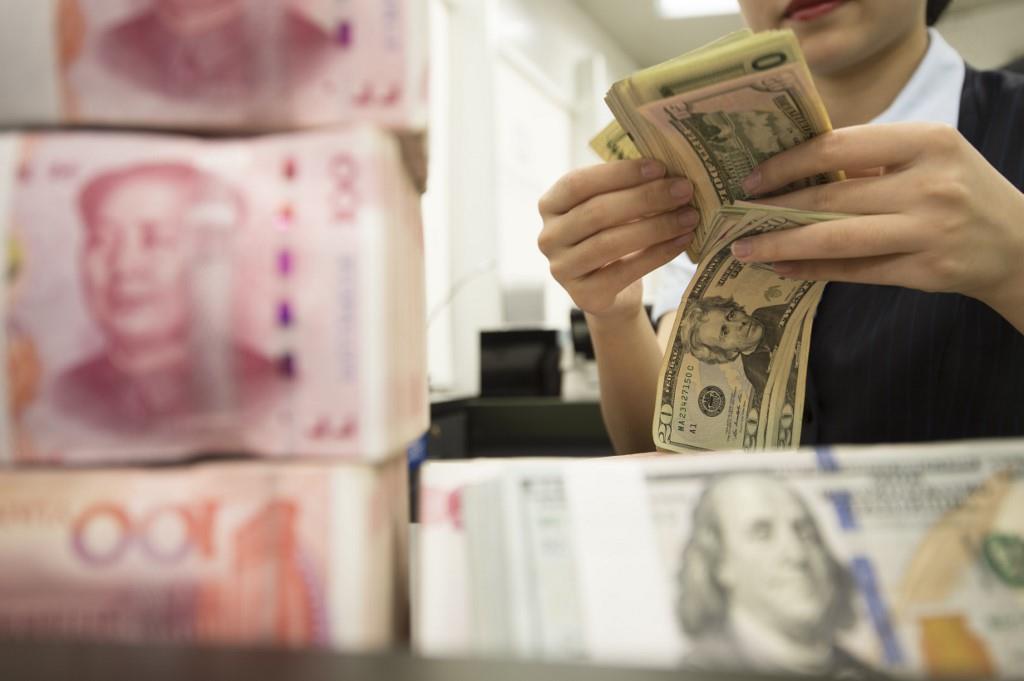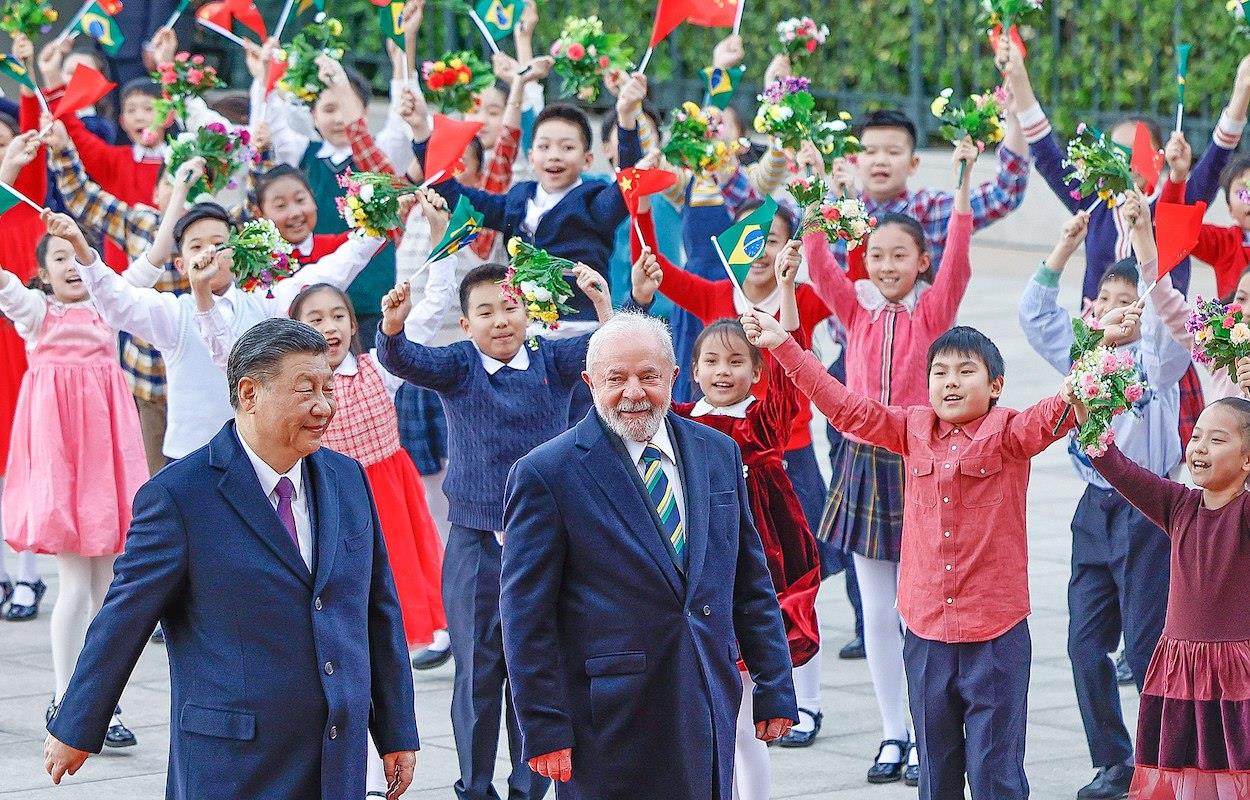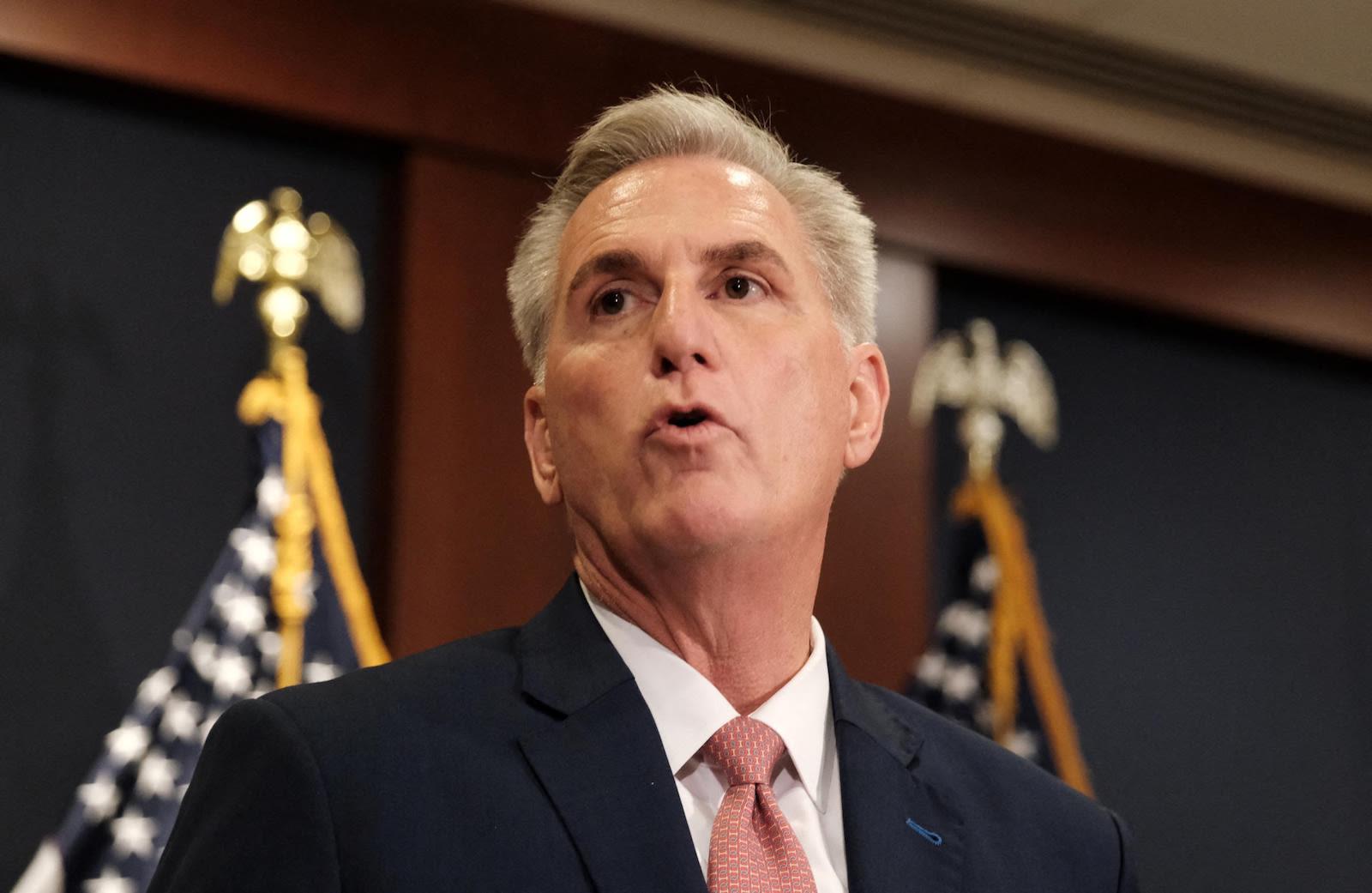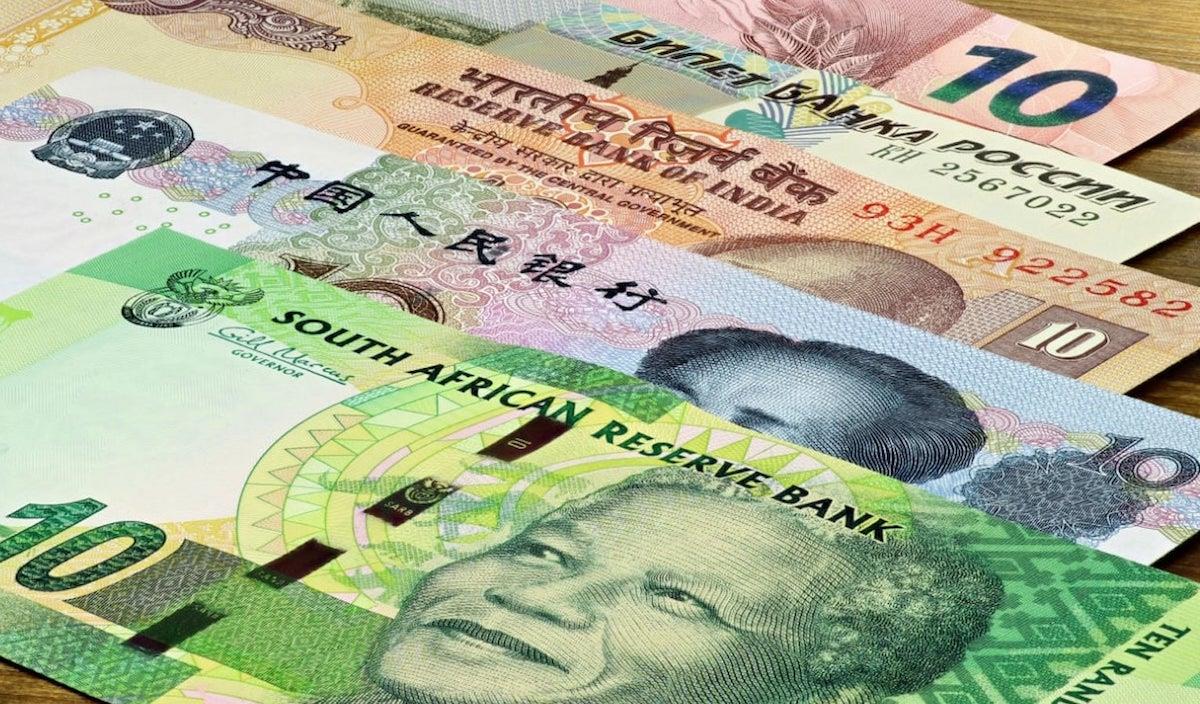(MENAFN- Asia Times) On the sidelines of the recent BRICS gathering in Cape Town, South Africa, officials contemplated as rarely before the five most dangerous words in economics: things are different this time.
For years now, Brazil, Russia, India, China, South Africa and other emerging economies hoped to break the dollar hegemony that complicates geopolitical calculations. In Cape Town, BRICS foreign ministers presided over what might be remembered as the moment the anti-dollar movement grew genuine legs.
In the lead-up to the confab, brics members urged the bank that the grouping set up to study how a joint currency might work - logistics, market infrastructure and how sanctions against Russia play into things.
Equally important is the flurry of foreign exchange arrangements popping up that exclude the dollar: China and Brazil agreeing to settle trade in yuan and reals; France beginning to conduct some transactions in yuan; India and Malaysia increasing use of the rupee
in bilateral trade; Beijing and Moscow trading in yuan and rubles.
The 10-member Association of Southeast Asian Nations (ASEAN) is joining forces to do more regional trade and investment in local currencies, not dollars. Indonesia, ASEAN's biggest economy, is working with South Korea to ramp up transactions in rupiah and won.
Pakistan is angling to begin paying Russia for oil imports via yuan. The United Arab Emirates is talking with India about doing more non-oil trade in rupees.
Over the weekend, Argentina announced it plans to double its currency swap line with China to roughly US$10 billion. It's partly desperation as Argentina's foreign currency reserves evaporate amid 109% inflation that has its central bank in damage control mode.
But it's also a sign of the rising anti-dollar movement in South America.
“Despite America's likely opposition, de-dollarization will persist, as most of the non-Western world wants a trading system that does not make them vulnerable to dollar weaponization or hegemony,” says Frank Giustra, co-chair of the International Crisis Group.“It's no longer a question of if, but when.”
Economist Rory Green at TS Lombard adds that“geopolitics and China's economic heft is driving - and will continue to drive - RMB adoption for trade and reserve holdings. Greater international use of the RMB will provide channels for sanctions-busting, but the dollar is not under threat.”

A clerk counting yuan and US dollar notes at a bank. Photo: AFP
To be sure, Green adds,“China is politically unwilling and economically unable - barring significant structural reform - to run a sustained current account deficit and to provide sufficient supplies of RMB assets globally,” which complicates Beijing's designs on competing with the dollar.
Here, BRICS members' stepping up with a strength-in-numbers gambit could be a game-changer.
Already, they account for 23% of global gross domestic product (GDP) and more than 42% of the world's population. At present, at least 19 other countries - including Saudi Arabia - want to join the BRICS fold, which would greatly grow its influence.
For now, the five BRICS nations are pooling $100 billion of foreign currency to act as a financial shock absorber. The funds can be tapped in emergencies, allowing members to avoid going to the International Monetary Fund. Since 2015, the BRICS bank has approved more than $30 billion of loans for infrastructure, transportation and water.
The brics currency issue has been gaining greater traction since mid-2022, when the 14th BRICS Summit was held in Beijing. There, Russian President Vladimir Putin said the BRICS were cooking up a“new global reserve currency” and were open to expanding its usage more widely.
In April, Brazilian President Luiz Inacio Lula da Silva
threw his support behind a BRICS monetary unit.
“Why can't an institution like the BRICS bank have a currency to finance trade relations between Brazil and China, between Brazil and all the other BRICS countries?” he asked.“Who decided that the dollar was the trade currency after the end of gold parity?”
Lula's return to the presidency four months earlier was a boost to the“global south” ambitions that Chinese leader Xi Jinping has been championing. In his third term, Xi is putting greater emphasis on morphing the Global South, or developing countries in the regions from Latin America to Africa to Asia to Oceania, into a bigger economic and diplomatic force.
Brazilian Finance Minister Fernando Haddad has been highlighting the increased use of local currencies in bilateral trade instruments like credit receipts. The focus, he says, must be phasing out the use of a third currency.
“The advantage is to avoid the straitjacket imposed by necessarily having trade operations settled in the currency of a country not involved in the transaction,” he told reporters.
Lula may get his answers in August when the BRICS summit of heads of state is held in Johannesburg. The desire for a BRICS version of the euro might get a boost from countries like Egypt, indonesia , Turkey and Saudi Arabia joining.

Visiting Brazilian President Lula da Silva and Chinese President Xi Jinping (left), at an official reception in April 2023. Photo: Wikipedia / Ricardo Stuckert
BRICS Ambassador Anil Sooklal says others keen to join include Afghanistan, Algeria, Argentina, Bahrain, Bangladesh, Belarus, Iran, Kazakhstan, Mexico, Nicaragua, Nigeria, Pakistan, Senegal, Sudan, Syria, the United Arab Emirates, Thailand, Tunisia, Uruguay, Venezuela and Zimbabwe. Sooklal hints that some European countries might sign up, too.
That, of course, also could add to the BRICS' troubles. The more this grouping adds members with disparate economies and challenges and conflicting ambitions, the more vulnerable the enterprise becomes. Russia's involvement alone, post-Ukraine invasion, complicates the broader legitimacy of the BRICS project.
The main problem, says Paul McNamara, investment director at GAM
Investments, is that brics is still an acronym in search of a cohesive economic argument. It was coined in 2001 by then-Goldman Sachs economist Jim O'Neill.
More likely, McNamara says, it will be one country alone that challenges the dollar: China. After all, he reasons, without China at the core, would most current global elites care about the BRICS?
Some think it could take longer to dislodge the dollar. Though the dollar's dominance will take time to unravel, the trajectory away from it is clear, says Vikram Rai, a senior economist at TD Bank.
“Within the next decade or two, there is great potential for regionally dominant currencies and a multipolar international regime to emerge, with the roles filled now by the dollar shared with the euro, a more open yuan, future central bank digital currencies and possibly other options we have yet to see,” Rai argues.
In a report last week, Moody's Investors Service analysts wrote:“We expect a more multipolar currency system to emerge over the next few decades, but it will be led by the greenback because its challengers will struggle to replicate its scale, safety and convertibility in full.”
Yet a bigger US pivot to protectionism, further risks of a default and weakening institutions are threatening the dollar's global influence, Moody's warns.
“The greatest near-term danger to the dollar's position stems from the risk of confidence-sapping policy mistakes by the US authorities themselves, like a US default on its debt for example,” Moody's analysts say.“Weakening institutions and a political pivot to protectionism threaten the dollar's global role.”
Even though US lawmakers raised the debt ceiling this time, Fitch Ratings is keeping Washington on watch for a potential downgrade . Fitch worries that the threat of default is now becoming a routine political ploy.
Fitch cautions“that repeated political standoffs around the debt-limit and last-minute suspensions before the X-date - when the Treasury's cash position and extraordinary measures are exhausted - lowers confidence in governance on fiscal and debt matters.”
What worries Fitch analyst James McCormack is US lawmakers missing the plot of protecting America's AAA rating. Politicians must understand that“you're playing with live ammunition here,” McCormack told CNN.“This is an extremely dangerous situation. There is a lot at stake.”

US Speaker of the House of Representatives Kevin McCarthy pushed the US to the brink of its first ever debt default. Image: CNN Screengrab
Among the biggest risks the US is taking is losing the“exorbitant privilege” that comes with printing the international reserve currency. This phrase was coined by 1960s French Finance Minister Valéry Giscard d'Estaing, who noted the dollar's pivotal role allowed the US to live beyond its financial means, year after year.
In April, French President Emmanuel Macron said that Europe should curb its dependence on the“extraterritoriality of the US dollar.”
That's particularly so as Sino-US tensions intensify. If the tensions between the two superpowers heat up, Macron said,“We won't have the time nor the resources to finance our strategic autonomy and we will become vassals.”
That same month, tesla founder elon musk warned via tweet that“de-dollarization is real and is happening fast. If you weaponize currency enough times, other countries will stop using it.”
Economist Stephen Jen at Eurizon SLJ Asset Management notes that“exceptional actions” - including sanctions imposed by the US and its allies against Moscow - have made all too many nations less willing to hold dollars.
Jen is quoted saying that the dollar suffered a“stunning collapse” in its market share as a reserve currency in 2022,“presumably due to its muscular use of sanctions.”
He calculates that the dollar's share of official global reserves fell to 47% last year, down from 55% in 2021 and a marked collapse from the 73% in 2001. Its loss of market share in 2022 alone was 10 times faster than the steady erosion over the past two decades, Jen says.
Billionaire Ray Dalio, founder of the Bridgewater Associates hedge fund, agrees that“there's less of an eagerness to buy” US Treasury securities.
He points to Western steps to freeze about $300 billion of Russian central bank assets, punitive moves Dalio says,“increased the perceived risk that those debt assets can be frozen in the way that they've been frozen for Russia.”
Yet, even just based on the economics, says brics concept founder O'Neill, the global system seems ready for a pivot.
“The US dollar plays a far too dominant role in global finance,” O'Neill notes.“Whenever the Federal Reserve Board has embarked on periods of monetary tightening, or the opposite, loosening, the consequences on the value of the dollar and the knock-on effects have been dramatic.”
That dynamic helped pave the way for events in Cape Town over the last few days, an event that may have legs in currency circles for generations to come.
Follow William Pesek on Twitter at @williampesek
Like this:Like Loading...






















Comments
No comment